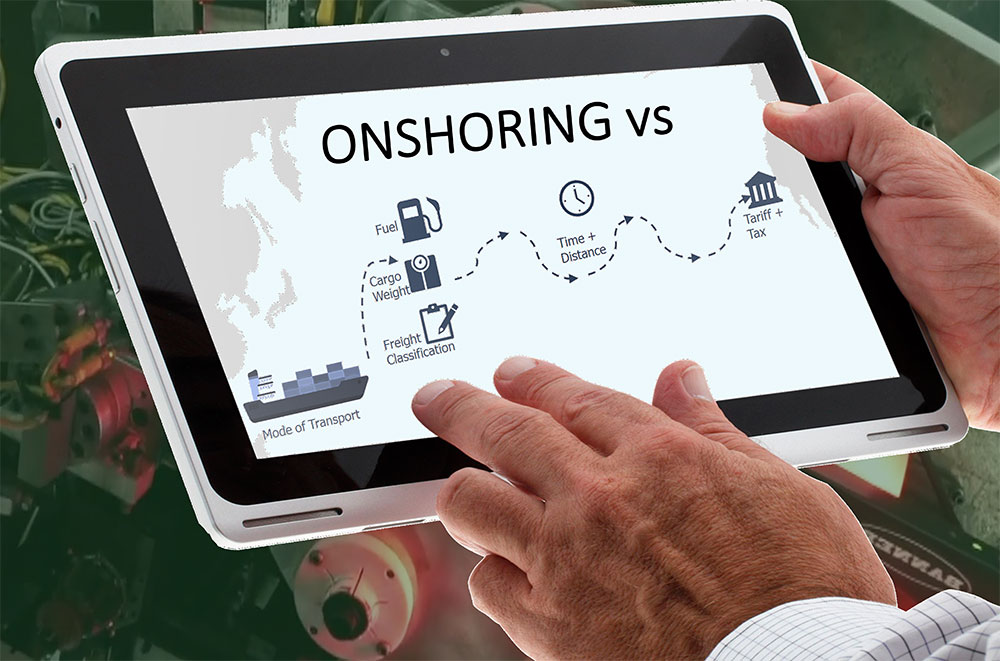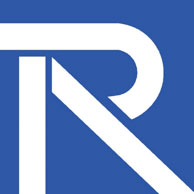October 14, 2019
By Steve Anton, President of Rahco Rubber
OEMs that outsource components to foreign producers to will soon learn — if they haven’t already — that their parts are lost at sea.
As more and more suppliers arrange search parties [pun for: conduct cost-benefits analysis], significant time and costs associated with shipping is seldom recovered, and the future looks grim for suppliers who have not evaluated onshoring options. In fact, the supply chain impact may be significant as the as the maritime industry prepares for one of the most significant changes in its recent history: IMO 2020 rules that will be met with escalating costs and operational challenges.

Manufacturers will face operational challenges in 2020 due to the new International Maritime Organization regulations coming into effect.
Starting January 1, 2020, all ships operating in the open sea must comply with stricter environmental regulation set by the International Maritime Organization (IMO 2020), aiming to reduce sulphur oxide emissions from sea vessels by 85 percent.
Operational challenges will be considerable, and the costs astronomical; with a total global impact in excess of $1 trillion over five years, according to S&P Global Platts Analytics estimates.
While the onus for compliance falls on carriers, price volatility will continue with anticipated service disruptions as thousands of ships are taken out of the market to fit equipment called scrubbers (or a switch to low-sulfur fuel or use of liquidized natural gas). In fact, overall prices of container transportation and freight rates have already increased significantly, including one indicator — the Baltic Dry Index — that surged in September to its highest since November 2010.
Fleets will consider factors such as the age of their vessels, trading routes and locational availability of the various fuel options. However, with concerns around demand outstripping supply, fuel costs will increase along logistics timelines and availability of shipping. These costs and implications will be passed down to those shipping materials.
We would be remiss to say that there are no benefits to offshoring — but the concept became too common practice. Many companies moved production to low-cost countries, worried that competitors would gain a cost advantage; fixating on a component’s unit price rather the total cost of ownership, which oftentimes results in a 20 to 30 percent miscalculation of actual offshoring costs. Some of the most commonly cited costs include inventory carrying costs, shipping, travel expenses and communications issues, rising offshore wages, as well as intellectual property risks.
Today, many US manufacturers are re-evaluating production and sourcing locations and are realizing major benefits of reshoring for large volume of high-quality products.
In the molded rubber category, an uptick in reshoring began years ago with motivations tied to quality standards and reducing supply chain exposure. This resurgence was largely due to an unbalanced increase in production costs with a steady, and even declining standard for quality. For example, from 2000 to 2016, indexed manufacturing labor costs increased 400 percent in China, compared to only 2 percent in the US.
In the last year, however, macro trends, trade war realities and regulations have further made the case clear for onshoring across industries, as OEMs realize the total costs of ownership of Made In USA components to be lower on average and declining.
Because of this — and impending IMO 2020 compliance — the supplier and OEM partnership will become more important than ever before, and companies that can source a local supplier will gain the advantage.
When a shipment isn’t crossing international borders or taking a long voyage over water, logistics costs are lower, far less complex and ensure a higher confidence of on-time delivery.
Whether doing business locally or across borders, when producing or assembling parts, OMEs should turn to suppliers that can truly address supply chain gaps and overall manufacturability through design enhancements, advanced product quality planning, and material offsets — such as Rahco Rubber.
Time to market can be reduced by leveraging fast prototyping, development and production, with secondary operations. For example, manufacturers often find it easier and more cost effective for part suppliers to perform various assembly operations. This can range from simple packaging of various components to highly automated cells for part assembly and boxing.
Along with automated production processes, OEMs should source vertically integrated suppliers that work as true partners, from conception to commercialization. If you must continue to do business with foreign manufacturers, make sure they understand the pace needed to launch new products, process efficiency techniques, like design for manufacturability, and can produce parts to exacting specifications. Don’t sacrifice quality or reliability — and never allow maritime industry changes delay shipping or increase costs for parts that can be made domestically.
Rahco Rubber is offering a no-obligation, risk-free analysis to not only validate your material formulation, but ensure all designs and components are optimized for performance, cost efficiencies and manufacturability. To learn more, please contact Rahco or take advantage of its complimentary testing services online.
 About Rahco Rubber
About Rahco Rubber
Rahco Rubber, Inc. is an ISO 9001:2008 & 2015 Certified, vertically integrated manufacturer of custom-engineered, precision molded rubber components and sealing solutions. It formulates and optimizes advanced polymer materials, produces highly-engineered rubber parts to exacting specifications, with zero defects, and facilitates secondary operations in-house. Since 1967, Rahco has built a reputation as a best-in-class supplier and value-added partner to the nation’s most sophisticated manufacturers, OEM’s and Tier I & II suppliers. It is a family owned and operated business that embraces a customer-focused philosophy based on trust, dedication to delivering the highest quality and lean manufacturing excellence. For more information, please visit https://rahco-rubber.com.

Steve Anton
Steve Anton
Steve Anton is the President of Rahco Rubber, a vertically integrated manufacturer of custom-engineered, precision molded rubber components and sealing solutions. His well-rounded knowledge of the rubber industry began in 1976, when he then took on his leadership role at the company his father co-founded. Since then, his work has been instrumental in advancing the industry and the overall success of the company — evolving from three employees, four machines, in less than a 5,000 sqft work space to what it is today; with over 100 employees, nearly 50 presses, compounding machines, fully equipped research and development and quality control labs, secondary automation cells and offices in a 60,000 sqft location. Steve was named Rubber Industry Executive of the Year (2016) by Rubber & Plastics News, has been recognized by Governor of the State of Illinois Bruce Rauner, and remains involved with many of the industry and business associations (such as ARPM, Rubber Division, ACS., Des Plaines Chamber of Commerce and the Illinois Manufacturing Association).
https://rahco-rubber.com/ | 847-298-4200
Scott Ellyson, CEO of East West Manufacturing, brings decades of global manufacturing and supply chain leadership to the conversation. In this episode, he shares practical insights on scaling operations, navigating complexity, and building resilient manufacturing networks in an increasingly connected world.